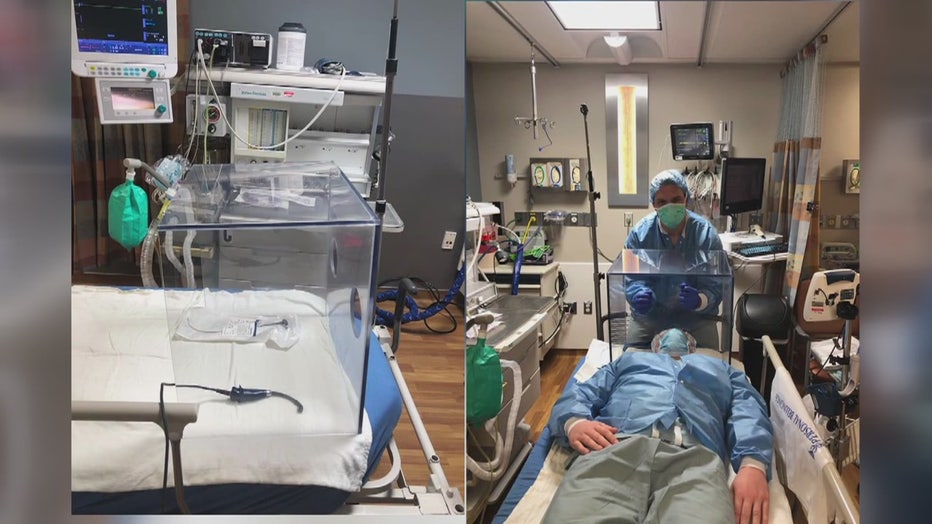Detroit area collision shop crafts shield prototype for Covid-19 nurses
RIVERVIEW, Mich. (FOX 2) - Lee and Nik Widener are usually working on cars over at Widener Collision in Riverview – but they’re switching gears for the time being to pitch in during the coronavirus crisis.
The duo got word that a friend from church, someone Lee mentored for years, was on the front lines at a Detroit hospital working as a nurse anesthetist and needed more protection to treat their patients. So they’ve designed what’s called an intubation box.

Widener Collision make intubation box prototypes for coronavirus nurses
A Riverview collision shop is switching gears amid the coronavirus crisis to help better protect doctors and nurses treating Covid-19 patients.
It’s a seemingly simple design – a plastic box - but it’s designed to save lives.
“We stopped what we were doing, I put three of my guys on it. They worked late into the night, all day, and we made one, a prototype of it,” Lee Widener said.
RELATED: Track Michigan coronavirus cases by county with this interactive map
“He was like, ‘Hey, we’ve got to get this one done,’ and it was nice knowing that I helped a personal friend who has helped me a lot,” Nik Widener said.
“One of the riskiest times for us in my profession is when we're intubating patients,” explains Joe Kiesznowski.
He explained that when they’re opening a patient’s mouth, inserting a tube into the airway to help the patient breathe, the intubation box sits over the patient's head, allowing the nurses to put in their hands and get better protection of their own airway.
RELATED: Social distancing: What to do and what not to do to slow the spread of COVID-19

“The viral load is mainly on the inside of the box instead of all over my face at that point,” Kiesznowski explained.
Joe says he learned about the intubation box from an anesthesiologist in Taiwan. Lee customized it, modified the size, had a carpenter build a mold and then they made the box out of polycarbonate plastic.
He had enough material to make two, one for Joe and his colleagues and one for another area hospital.
RELATED: Is it the flu, a cold or COVID-19? Different viruses present similar symptoms
“It was pretty labor-intensive. It was a neat project and it was just one of those things I would have never thought we’d be making something like that here but we were glad to be a part of it,” Lee said.
Lee says they don’t have the resources to mass-produce these but they are answering questions from people around the country from people who want to make these themselves.
“I've used it on a few patients already and it’s worked out great. I know other colleagues that have used it and they also feel it’s a great asset to us,” Kiesznowski said.
You can contact Widener Collision on Facebook here.

